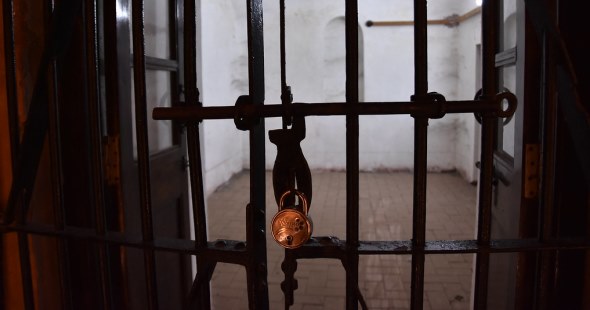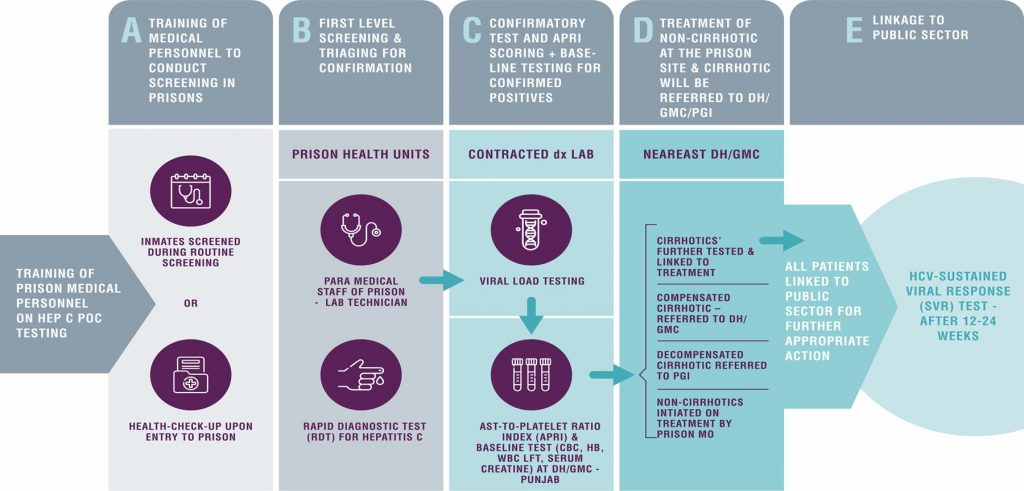Hepatitis C virus screening in prisons

What is this project?
FIND has developed a model to screen, confirm and create linkages to hepatitis C virus (HCV) treatment in nine prisons in Punjab, nine prisons in Haryana, and one model jail in Chandigarh.
Why are we working on it?
HCV is a globally prevalent pathogen and is a major cause of healthcare burden in India. A disease affecting the liver, hepatitis C is contracted through exposure to infected blood – via unsafe healthcare practices such as poor injection hygiene, the transfusion of unscreened blood and blood products, or injection drug use. As many as 5–20% of people who are chronically infected may develop serious conditions, including liver cirrhosis or liver cancer. Estimates suggest that, in India, anywhere between 12 and 18 million people are infected with HCV.
Prisons have been reported to have a high proportion of people who inject drugs (PWIDs) and people from the LGTBQIA+ community, which makes these settings particularly prone to increased risk of HCV transmission.
What does it involve?
HCV interventions in prisons, represented by the graphic below, follows a simple approach aimed at eliminating HCV through screening, confirmatory testing and linking at least 60% of confirmed patients with the public sector for free treatment. FIND screens prison inmates for presence of HCV infection, including confirmatory HCV RNA testing, and the state governments provide free treatment for those with HCV.

What do we expect to achieve?
The project aims to screen approximately 30,000 inmates across all project sites, and link 60% of those confirmed with HCV to public sector facilities for treatment, thereby contributing to micro-elimination of HCV in correctional settings in India. In this way, we aim to establish a viable model for micro-elimination of HCV in prisons that can be translated and scaled up by partners across additional states in the country and globally.
What is the timescale?
The project was initiated in 2018 and shall continue through 2021.
Partners and funding
Our work is being conducted in partnership with Government of Punjab, Government of Haryana, and Chandigarh Administration, India.
The project is funded by Gilead.
More information
For more information please contact us.

